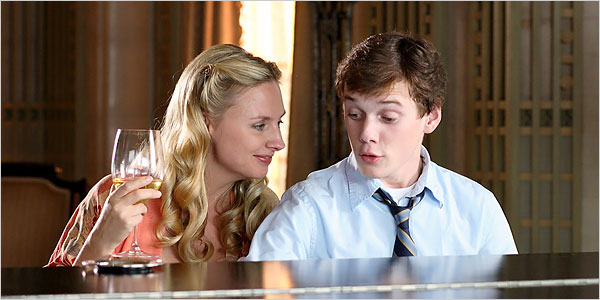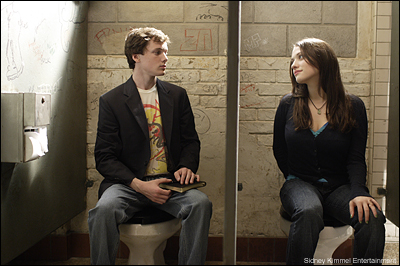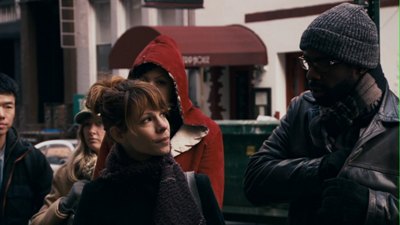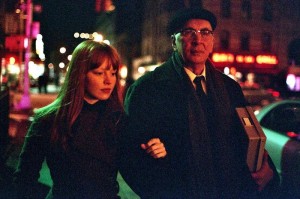This is the third of my bimonthly columns for Cahiers du Cinéma España; it ran in their October 2007 issue. — J.R.
In recent years, it’s become one of my major convictions that, film industry “wisdom” to the contrary, we know practically nothing about the audience. Despite pseudoscientific prognostications that have grown up around commercial projections —- many of which turn out to be mistaken guesses —- public taste continues to be mysterious and in a state of perpetual flux. All this should be an occasion for celebration, not frustration, because the moment we can predict an audience’s responses, cinema as a social activity becomes a rather tedious subject.
The people most frustrated about this uncertainty are distributors and marketers, and sometimes this leads to the frustration of reviewers as well, including myself. The most interesting press screenings I attended this past summer were for a couple of commercial releases whose opening dates are either unset or periodically postponed, and the reasons for this aren’t hard to fathom. As Orson Welles discovered repeatedly, films that are fresh and unconventional are harder to gauge as commercial prospects than stale and conventional ones — hence harder to sell, and therefore less likely to be sold at all. This is how one accounts for the relative box office success of Welles’s relatively pedestrian The Stranger and the much-delayed U.S. releases of so many of his other features, starting with Citizen Kane and continuing through The Lady from Shanghai, Othello, and F for Fake, among others.
The two new and still-unreleased films in question are Charlie Bartlett and Starting Out in the Evening. Apart from the presence of Robert Downey Jr. and Hope Davis in the first (in secondary roles as the teenage heroine’s father, an alcoholic high school principal, and the teenage hero’s mother, a wealthy eccentric) and Frank Langella and Lili Taylor in the second (in the lead parts as an aging, ailing New York Jewish novelist and his single daughter, a former dancer), there are hardly any names associated with either film that were recognizable to me.
Charlie Bartlett, written by Gustin Nash and directed by Jon Poll, is an edgy teen comedy, unusual in the U.S. for both its politics and its class consciousness, about a rich kid (Anton Yelchin in the title role) who becomes popular at his high school by getting prescriptions for various drugs from psychotherapists, then furnishing them to his needy classmates, meanwhile romancing the principal’s daughter (Tyler Hilton) and helping to lead a student rebellion against the school’s surveillance system.
Starting Out in the Evening, directed by Andrew Wagner from a script he wrote with Fred Parnes, adapted from a novel by Brian Morton, owes much of its novelty to the fact that it includes the sort of characters one almost never finds in “commercial” films, and keeps them all ambiguous and unpredictable. A graduate student (Lauren Ambrose) writing her thesis on an out-of-print novelist tries to convince him that this might be able to bring his works back into print, and despite the enormous differences between them in age and temperament, an uncertain but increasingly intimate relationship develops between them. Meanwhile, the novelist’s 40-year-old daughter, still hoping to have a child, tries to come to terms with her former boyfriend (Adrian Lester), a black intellectual determined not to have children.
Neither film qualifies as a masterpiece, but both exemplify a kind of adventurous filmmaking, and one that becomes increasingly difficult to envisage in a contemporary marketplace where first impressions are supposed to mean everything —- an unpromising requirement for any art form. If distributors don’t trust these films because they don’t trust the audience, this isn’t a kind of mistrust that can be attributed only to distributors. The very fact that I find these films difficult to describe as a critic also helps in some fashion to make them less immediately saleable.




